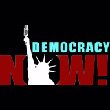Bolivia to Spend $6.8B to Fight Poverty

Picture: Estepas Bolivianas
By: NEB / Bolivia Now
Article published on THE WASHINGTON POST
By FIONA SMITH
The Associated Press
Saturday, June 17, 2006; 9:46 AM
LA PAZ, Bolivia -- Bolivian President Evo Morales' leftist government says it will fight poverty, hunger and homelessness in South America's poorest nation by investing $6.8 billion through 2010, much of it with ambitious public works projects.
The funding will come chiefly from Bolivia's recently nationalized natural gas wealth, with international lenders and foreign investment also important sources.
The development plan, announced Friday, would significantly boost the state's role in the economy, creating jobs and delivering more basic public services such as subsidized meals for school children and greater access to potable water.
Bolivia will be "dismantling the neoliberal policies that have impregnated Bolivia in recent decades in order to build a social and communal state to live well," Carlos Villegas, the planning and development minister, told a crowd of dignitaries at the presidential palace that included foreign diplomats and representatives of the country's indigenous poor.
Although Villegas didn't mention Venezuela by name, many of the social projects he mentioned are similar to programs created by that country's leftist president, Hugo Chavez.
The administration already has about 60 percent to 70 percent of the funds it plans to invest over the next few years in projects beginning with housing and highway construction and including the creation of a metallurgy industry and the retooling of Bolivia's electrical grid, Villegas told The Associated Press.
The rest would come from international lenders, said Villegas, who are to convene jointly with the government in the last quarter of 2006 to work out details.
It was unclear whether the government, which is currently in testy negotiations with Brazil and Argentina over natural gas price increases, will be able to cover all the plan's costs.
Foreign diplomats said much would depend on Bolivia's gas revenues. The vice minister of planning and development, Noel Aguirre, said the plan was also predicated on gas sale revenues from Paraguay.
He said Bolivia was also negotiating to sell gas to European and Asian countries he would not name.
With the heavy public investment, the government hopes to create 90,000 jobs per year and cut the current 8.4 percent unemployment rate by more than half by 2011.
Over the same period, it also wants to drop the poverty rate to just under 50 percent from the current 59 percent and close the gap between the rich and the poor.
Currently, the top 10 percent of Bolivians earn 25 times what the bottom 10 percent. The government seeks to reduce that to 21 times by 2011.
In the next five years, the government also wants to nearly double Bolivia's gross domestic product growth rate from 4.1 percent in 2005 to 7.6 percent, reduce deficit spending from 3.1 percent to 2.1 percent, be self-sufficient in agricultural production, bring electricity and gas to hundreds of thousands of families, create a state development bank and build more roads.
"We need to get into more depth to know whether we'd support this or not," said Roberto Mustafa, president of The Association of Private Business Leaders of Bolivia, one of the country's biggest industry groups.
"We've heard the what, but we still need to know the how _ and with what," he said.
Business leaders have been critical of Morales' economics, especially after he said he would "never" negotiate a free trade agreement with the United States, instead signing an alternative "people's" trade pact with his close allies Venezuela and Cuba.
The government changed its position Friday, however. Celinda Sosa, the country's minister of production and small business, told reporters Bolivia would like a trade deal with Washington.
While the export of raw materials such as minerals and timber are important to Bolivia's economy, it depends most on its vast natural gas reserves.
Morales nationalized Bolivia's natural sector on May 1, giving the state energy company majority control over all operations and telling foreign companies operating in Bolivia they had six months to negotiate new contracts or leave.
In the mining sector, Villegas reiterated earlier statements that the government would be looking to boost revenues by raising mining taxes and would revert unused mines back to state control.
___
Associated Press Writer Frank Bajak contributed to this report.














